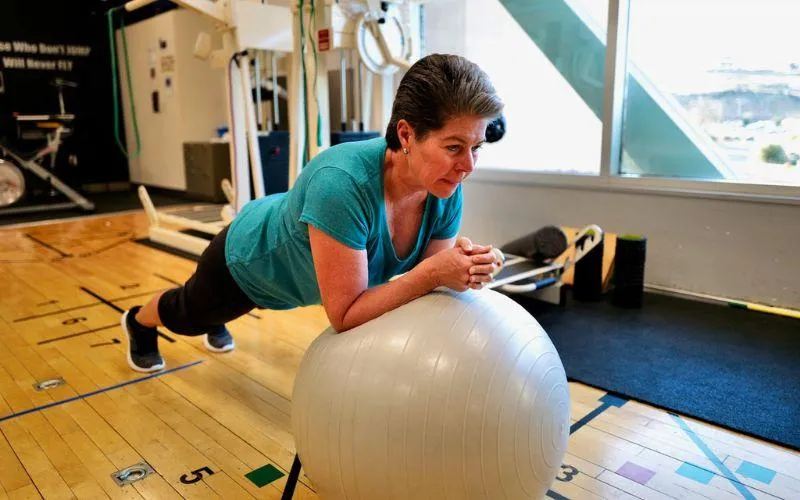

DENTAL HEALTH ARTICLES

Staying Fit, Staying Young: The Power of Fitness
In today's fast-paced world, staying fit and maintaining youthfulness have become increasingly important. Many individuals are searching for ways to not only look and feel younger but also to lead a healthier and more vibrant life. Fitness plays a crucial role in achieving these goals.
The Physical Benefits of Staying Fit

One of the most apparent benefits of staying fit is the positive impact it has on our physical well-being. Regular exercise can help maintain a healthy weight, reduce the risk of chronic diseases, and increase longevity. It can also improve cardiovascular health, build lean muscle, strengthen immune function, and provide mental health benefits. The aging process is associated with changes in muscle mass with decline of muscle strength. Loss of muscle mass is referred to as sarcopenia. The main symptom of the condition is muscle weakness. Sarcopenia is a type of muscle atrophy primarily caused by the natural aging process. Scientists believe being physically inactive and eating an unhealthy diet can contribute to the disease. Muscle mass decreases approximately 3 percent to 8 percent per decade after the age of thirty, and this rate of decline is even higher after the age of sixty. This involuntary loss of muscle mass, strength, and function is a fundamental cause of and contributor to disability in older populations. This decline can be reversed by engaging in progressive strength training and a healthy diet.
The Mental Benefits of Staying Fit
Maintaining a fitness routine not only has physical advantages but also profoundly impacts mental health and cognitive function. Here are some of the mental benefits of staying fit:
Stress Reduction. Physical activity stimulates the release of endorphins, natural mood-enhancers that reduce stress and improve overall well-being.
Enhanced Cognitive Function. Exercise has been linked to improved memory, cognitive function, and mental clarity. It may also reduce the risk of age-related cognitive decline, such as Alzheimer's disease.
Better Sleep. Regular exercise can improve the quality and duration of sleep, contributing to overall mental health and alertness.
Increased Self-Esteem and Confidence. Achieving fitness goals can boost self-esteem and confidence, leading to a positive self-image and mental attitude.
The Emotional Benefits of Staying Fit
Fitness is not limited to physical and mental well-being; it also positively impacts our emotional state. Regular exercise has several emotional benefits: improved mood, stress relief, enhanced social interactions, increased energy, and vitality.
Staying fit is not just about aesthetics or vanity; it's about embracing a healthier and more youthful lifestyle. The physical, mental, and emotional benefits of regular exercise are well-documented, making it an essential component of overall well-being. By incorporating fitness into our daily routine, we can enjoy a higher quality of life, prevent the onset of chronic diseases, and experience the joy of feeling youthful and full of vitality.
To stay fit and young, it's crucial to find a fitness routine that suits your preferences and needs. Whether it's jogging, yoga, weightlifting, or team sports, the key is consistency. It's never too late to start, and the sooner you begin, the more profound and lasting the benefits will be. So, why wait?
Start your fitness journey today and discover the transformative power of staying fit and staying young. If you want to learn more about our High Performance Aging Program call 435-251-3733 or email [email protected] at Intermountain Sports Performance.
